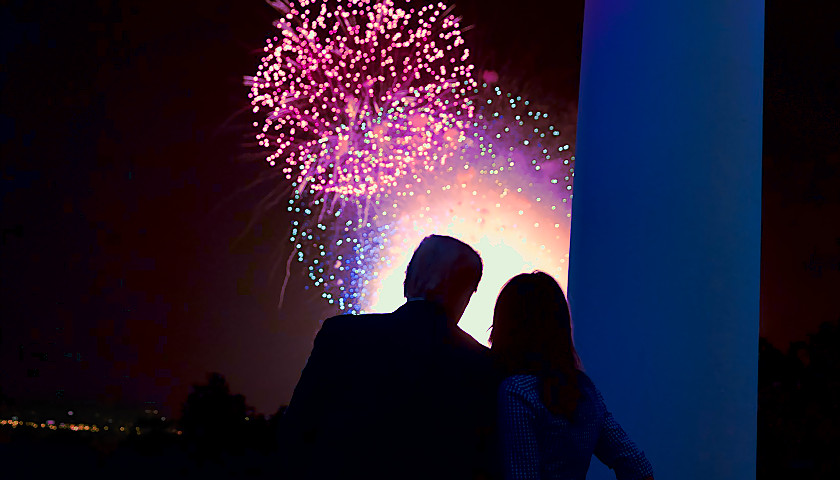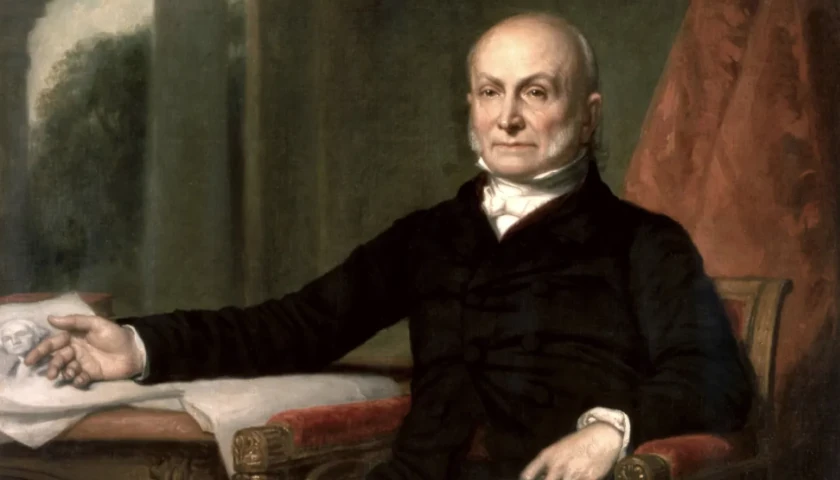Two years before he formulated the ideas for the Monroe Doctrine, then-Secretary of State John Quincy Adams was asked to give the annual Independence Day address in the United States Capitol. It became what historian Samuel Flagg Bemis called a landmark document in the history of American foreign policy. Its message continues to resonate in modern debates about U.S. foreign policy.
Before getting into the details of Adams’ address, some background about Adams and 1821 (the year he delivered the speech) is necessary. John Quincy Adams was the son of John Adams, one of the driving forces behind America’s independence and the nation’s second president. Young John Quincy accompanied his father in diplomatic posts in France, and later served as private secretary to Francis Dana in Russia. Young Adams also had served as his father’s private secretary during the negotiations of the Treaty of Paris (1783) that ended the War of Independence. He was appointed by President George Washington as U.S. Minister Resident to the Netherlands in 1794. He served in that same position in Prussia during his father’s presidency. President Madison named John Quincy U.S. Minister to Russia in 1809, and he served in that position until 1814, as the Napoleonic Wars were coming to a close. He chaired the U.S. delegation that negotiated the Treaty of Ghent which ended the War of 1812 with Great Britain, and later served as U.S. Minister to Great Britain in the aftermath of Napoleon’s defeat at Waterloo. President James Monroe appointed John Quincy as Secretary of State. In 1824, Adams won the disputed presidential election in the House of Representatives, where he bested military hero Andrew Jackson. (Jackson would later claim that Adams won the presidency in a “corrupt bargain” with Henry Clay, whom Adams appointed as Secretary of State).
Read More


